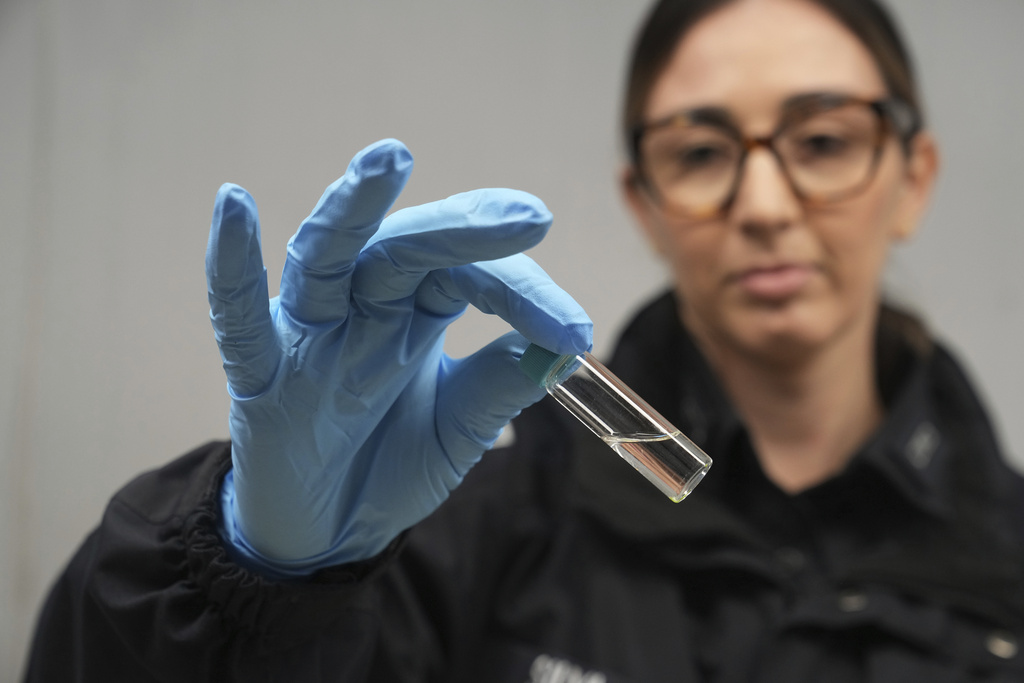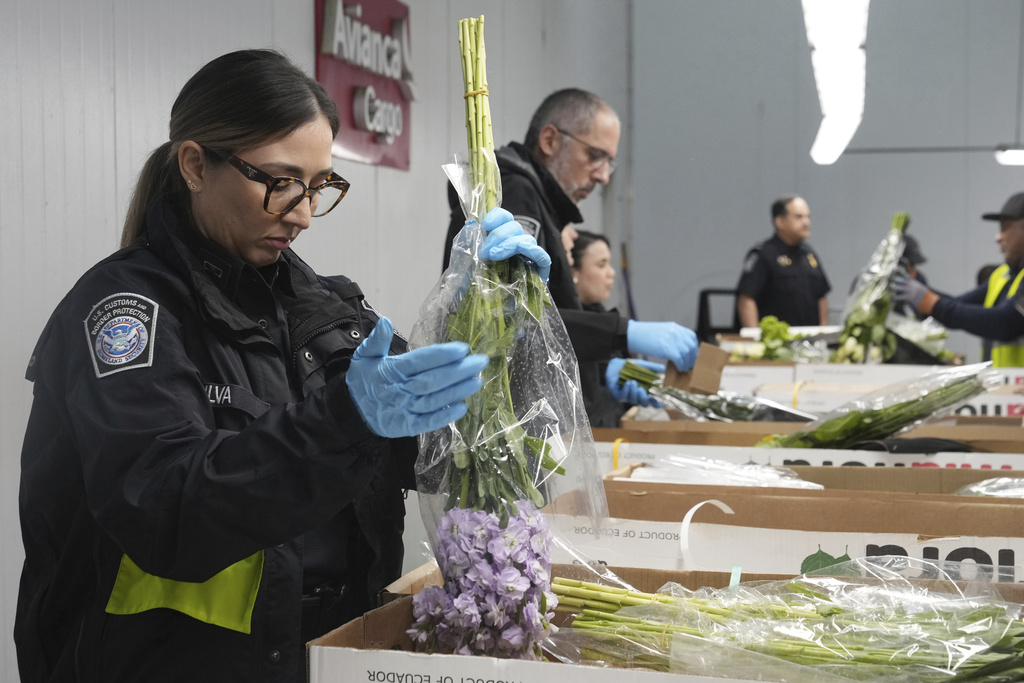MIAMI (AP) — If any husbands or boyfriends mess up Valentine's Day this week, it's not because of a shortage of flowers.
In the run up to Feb. 14, agricultural specialists at Miami International Airport have processed about 940 million stems of cut flowers, according to U.S. Customs and Border Protection. Around 90% of the fresh cut flowers being sold for Valentine's Day in the United States come through Miami, while the other 10% pass through Los Angeles.
Roses, carnations, pompons, hydrangeas, chrysanthemums and gypsophila arrive on hundreds of flights, mostly from Colombia and Ecuador, to Miami on their journey to florists and supermarkets across the U.S. and Canada.
Miami's largest flower importer is Avianca Cargo, based in Medellín, Colombia. In the past three weeks, the company has transported about 18,000 tons of flowers on 300 full cargo flights, senior vice president Diogo Elias said during a news conference last week in Miami.
“We transport flowers all year round, but specifically during the Valentine’s season, we more than double our capacity because there’s more than double the demand,” Elias said.
Flowers continue to make up one of the airport's largest imports, Miami-Dade chief operation officer Jimmy Morales said. The airport received more than 3 million tons of cargo last year, with flowers accounting for nearly 400,000 tons, worth more than $1.6 billion.
“With 1,500 tons of flowers arriving daily, that equals 90,000 tons of flower imports worth $450 million just in January and February,” Morales said.
It's a big job for CBP agriculture specialists, who check the bundles of flowers for potentially harmful plant, pest and foreign animal diseases from entering the country, MIA port director Daniel Alonso said.
"Invasive species have caused $120 billion in annual economic and environmental losses to the United States, including the yield and quality losses for the American agriculture industry," Alonso said.

Colombia's flower industry was recently looking at a possible 25% tariff, as President Donald Trump quarreled with the South American country's leadership over accepting flights carrying deported immigrants. But the trade dispute came to a halt in late January, after Colombia agreed to allow the flights to land.

